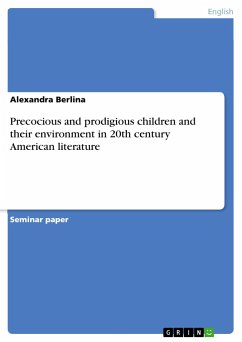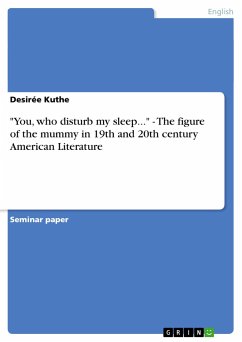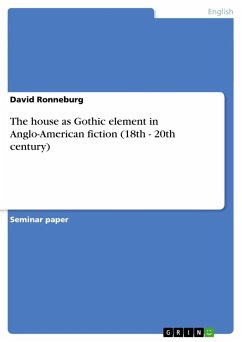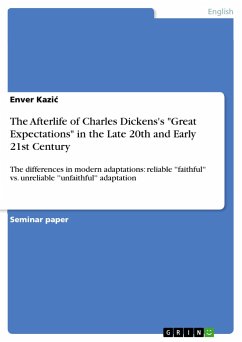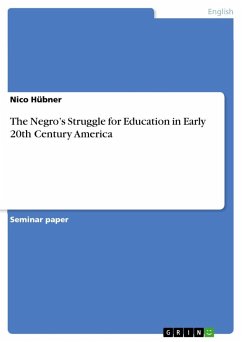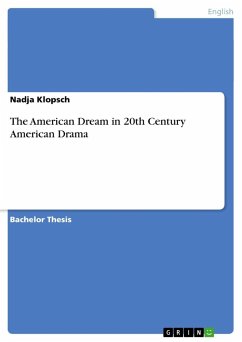Seminar paper from the year 2006 in the subject American Studies - Literature, grade: 1,0, University of Dusseldorf "Heinrich Heine", course: Hauptseminar "20th Century American Short Stories", language: English, abstract: Preface: Defining the topicIn literature, just like in reality, gifted children may differ from each other in every aspect except for the very existence of a special talent or very high intelligence. Still, both in life and fiction, certain types can be traced. The terms child prodigy or wunderkind evoke a child which has developed outstanding skills in a certain area like chess (cp. the protagonist of Amy Tan's short story "Rules of the Game" or Luzhin in Nabokov's "Luzhin's defence"; in reality, almost every grandmaster demonstrated exceptional skills in early childhood, the most prominent example being probably Capablanca), music (McCullers' wunderkind in the short story of the same title does not live up to a comparison with Mozart, but is also considered apiano prodigy as a child), or any other art or science. In the study "Child Prodigies and Exceptionally Early Achievers", the psychologist John Radford practically equates the former with the latter, despite the conjunction in the title. The Wikipedia offers a similar definition: "A child prodigy, or simply prodigy, is someone who is a master of one or more skills or arts at an early age. One possible definition of a prodigy is a person who, by the age of 10, displays expert proficiency in a field usually only undertaken by adults"1.As this paper intends to study prodigious children in American literature, the best source for a definitions seems to be the leading American dictionary. However, Webster's2 is extremely vague: "a person or thing of remarkable qualities or powers: an infant prodigy"is listed as a second possibility after an even more general reference to everything extraordinary. Merriam- Webster OnLine defines a prodigy in point 2b as "a highly talented child or youth"3. Unlike the print version, it also lists the word wunderkind as "a child prodigy; also: one who succeeds in a competitive or highly difficult field or profession at an early age", implying by the also that such success is not a typical trait of an infant prodigy. The Encyclopedia Britannica gives the most elaborate description which (according to a mini-survey of about a dozen subjects effected by the author of this essay) perfectly matches a native speaker's use: "an extraordinary person, particularly a child, who shows spontaneous early signs of genius or exceptional ability along certain lines"4. It also stresses chess, maths and music as typical fields of prodigious achievement.Mentions of the words prodigy and wunderkind in other articles of the Encyclopedia add up to 150. The adjective prodigious occurs 176 times, but only rarely referring to early achievers. Surely the encyclopedia's editors did not have to use this particular term every time they considered somebody asshowing talent early. Word combinations like at an early age or as a child appear thousands of times, but a random sampling shows that in the overwhelming majority of biographical articles they are used to describe outer circumstances rather than achievements.
Hinweis: Dieser Artikel kann nur an eine deutsche Lieferadresse ausgeliefert werden.
Hinweis: Dieser Artikel kann nur an eine deutsche Lieferadresse ausgeliefert werden.

